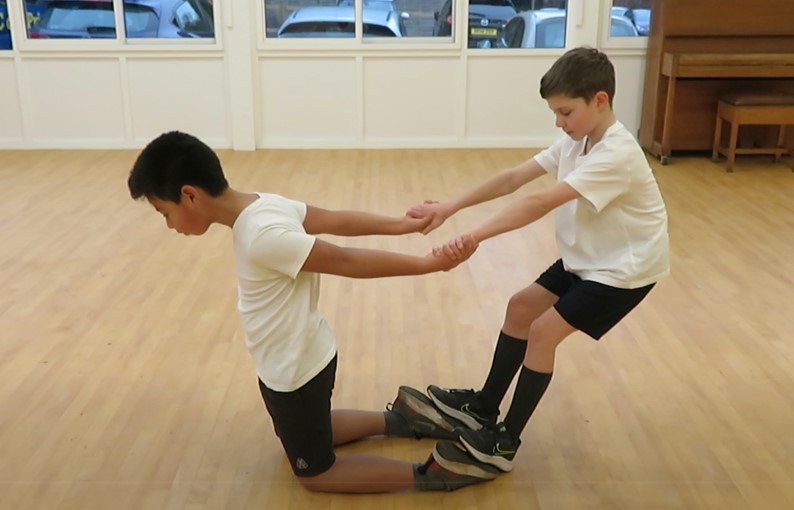|
Value
|
How We Promote It
|
|
Democracy
Links to school values: Trust, Honesty, Peace, Understanding, Responsibility, Tolerance, Freedom, Unity, Inclusion, Integrity
UN CRC Article 12: Children have the right to say what they think should happen, when adults are making decisions that affect them, and to have their opinions taken into account.
|
- We have an elected School Council.This is used as an opportunity to promote and teach about democracy and the electoral process.
- We encourage volunteering in and out of school.This includes things like the Eco Schools, Peer Mediators, Healthy Schools and prefect lunch helpers, and also raising money for local and national charities.
- The beginnings of democracy are taught through historical research of the Ancient Greece civilisation.
- Democracy is also promoted through additional PSHE lessons and collective worship.
- Pupils are regularly asked for their views through an annual survey.
Key Christian text: In those days there was no king in Israel; everyone did what was right in his own eyes. Judges 21:25
|
|
The rule of law
Links to school values: Honesty, Responsibility, Co-operation, Unity
UN CRC Article 19: Governments should ensure that children are properly cared for, and protect them from violence, abuse and neglect by their parents, or anyone else who looks after them.
|
- We have high expectations about pupil conduct and this is reflected in our Behaviour Policy. There are rewards for exhibiting responsible actions and respectful behaviour. Demonstration of our values is recognised through such things as weekly teacher awards, our house point system and Headteacher’s certificates.
- Through our school’s Christian values and collective worship, children are taught how to earn trust and respect and are supported to develop a strong sense of morality – knowing right from wrong and doing the right thing even when it’s difficult.
- The local police officer / PCSO visit the school to talk to the children and explain about their role in society.
Key Christian text: The Ten Commandments Exodus 20
|
|
Individual liberty
Links to school values: Honesty, Humility, Courage, Freedom, Co-operation, Perseverance, Exploration, Self-discovery, Bravery, Integrity
UN CRC Article 31: All children have a right to relax and play, and to join in a wide range of activities.
UN CRC Article 15: Children have the right to meet together and to join groups and organisations, as long as this does not stop other people from enjoying their rights.
|
- Through our school values, collective worship and PSHE programme, children are taught about personal responsibility, choices, ambition and aspiration. They are encouraged to take opportunities to follow their interests in art, music, sport, etc.
- Children are taught how to keep themselves safe, including on-line.This is done through computing lessons, collective worship and outside organisations, as well as through the PSHE curriculum.
- Pupils discuss topical current affairs as they arise and link them to our values.They are encouraged to discuss and debate, expressing their opinions and respecting the rights of others to differing points of view.
- Pupils raise money for charities like NSPCC which stand up for the rights of children.
- Independent learning is fostered and respected.
- Bullying is not tolerated, and we have a robust anti-bullying policy.
Key Christian text: If you abide in my word, you are truly my disciples, and you will know the truth, and the truth will set you free. John 8:31-32
|
|
Mutual respect
Links to school values: Appreciation, Love, Honesty, Understanding, Tolerance, Courage, Perseverance, Loyalty, Acceptance, Inclusion
UN CRC Article 2: The Convention applies to everyone whatever their race, religion, abilities, whatever they think or say and whatever type of family they come from.
UN CRC Article 30: Children have a right to learn and use the language and customs of their families, whether these are shared by the majority of people in the country or not.
|
- We provide opportunities for children to work together with children from different year groups.
- We celebrate diversity by inviting families in from other faiths and cultures to talk to children about their customs.
- We have high expectations about pupil conduct and this is reflected in our Pupil Behaviour policy.
- Through our school’s Christian values, children are taught to respect each other, to be cooperative and collaborative, be supportive and to look for similarities while being understanding of differences.
- Mutual respect is also promoted through additional PSHE lessons and collective worship.
- Staff are good role models by treating others as equals.
Key Christian text: So whatever you wish that others would do to you, do also to them. Matthew 7:12
|
|
Tolerance of different faiths and beliefs
Links to all school values: Appreciation, Love, Understanding, Tolerance, Courage, Acceptance, Inclusion
UN CRC Article 14: Children have the right to think and believe what they want, and to practise their religion, as long as they are not stopping other people from enjoying their rights. Parents should guide their children on these matters.
|
- We have high expectations about pupil conduct and this is reflected in our Pupil Behaviour Policy.
- Tolerance of different faiths and beliefs is promoted through the Locally Agreed Syllabus for Religious Education. Children learn about different religions, their beliefs, places of worship and festivals. The children’s work on this subject is often displayed in the classrooms or around the school.
- This is supplemented by collective worship (Key Stage and whole-school), which, although mainly Christian in nature, also marks and celebrates significant religious festivals such as Ramadan and Diwali.
- Visits are made by local religious leaders and children have the opportunity to visit places of worship.
- Our links with the local churches are strong and the vicar and pastor visit on a regular basis.
Key Christian text: A new commandment I give to you, that you love one another: just as I have loved you, you also are to love one another. John 13:34
|

